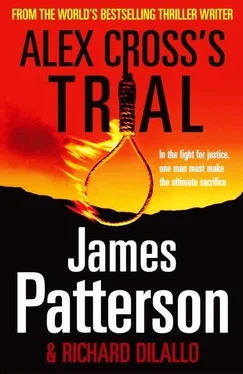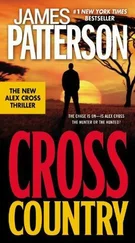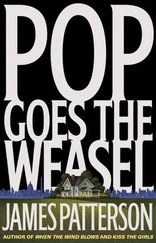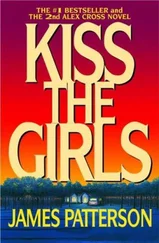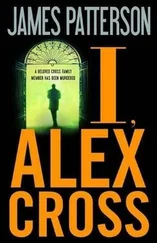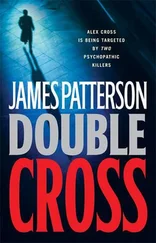“Please proceed, Mr. Corbett,” my father said, “and let us decide for ourselves if that is true.”
The audience laughed again. My old dad had definitely won the first round.
I wondered what he saw, peering down at me from his bench. Did he see a Harvard Law graduate, a well-known Washington defense lawyer? Did he see a man of passion, righteousness, ambition?
No. He saw a boy crying when he fell off his rocking horse, a child furiously resisting a spoonful of the hated mashed carrots. He didn’t see me. He saw a powerless boy.
So I was determined that when I finished speaking, he would see a man; he might even see the real Ben Corbett.
“Thank you, Your Honor,” I said. “I will try not to disappoint you.”
BENJAMIN E. CORBETT’S SUMMATION to the jury:
“Judge Corbett just told you that you have to let the facts speak for themselves. The only problem with that is, facts do not have voices of their own; they can’t actually speak. So I’m the one who is standing here to give voice to the facts. That is my job today, and I appreciate your willingness to give me an ear.
“It’s the middle of the night in the Eudora Quarters. Three men ride up to execute a search warrant. It’s two o’clock in the morning – hardly the most traditional time to conduct a search of private premises – but that is what these men have decided to do.
“Ah, but wait. There’s a girl in the house, granddaughter of the old dying man. She reads the warrant and accepts it. She doesn’t like it, she says, but it’s the word of the law, so she will not resist. Come on in, she says. Search our house. Torment us. Question us. Rifle through our belongings. We have committed no crime, there is no actual legal reason for you to want to search here. But she allows it. She opens the door. She lets them in.
“And yet even her total submission, her complete and immediate cooperation, are not enough for these men. The search warrant was simply a ruse to get in the door. They have not come here to do anything legal.
“They are here to torture and torment, and to kill, because they think it’s their right to kill anyone who gets in their way. To skirt around the law and execute anyone they decide is guilty. To evade juries like the one you gentlemen are sitting on today. They are there to kill the idea of fair trial, a jury of a man’s peers. They have come to get their way by using the gun, the knife, the rope. And the terrible rule of the mob.”
Calmly, meticulously, I began to lead them through the events of that night – the shooting and wounding of the guards at Abraham’s house, the death by kicking of Luther Cosgrove, the fatal shooting of Jimmie Cooper up on the roof, the spectacle of poor Abraham with a gun to his head.
And finally, I told them about my part in the whole thing: why I’d gone to Abraham’s house that night, how I knew the Raiders were coming, what I did and thought and felt at every moment. I explained how lucky Abraham and I had been to avoid being killed and to manage to bring these three Raiders to Phineas Eversman so the law could work as it is supposed to work.
“Now, Chief Eversman did his duty that night as an officer of the law. Not only that, he stuck his neck out, gentlemen. He did the honest, moral, upright thing – and that’s not always easy to do. He arrested these men and charged them, and he saw that they were brought to trial. He may have changed his mind since then about some things, but the fact remains that Chief Eversman knew instinctively that these men had to be stopped.
“He had no choice. He saw the blood. He smelled it – that’s how fresh it was. The blood of their victims was on the defendants’ hands when we brought them to him. It was on the toes of their boots.
“Now you gentlemen are in the same position the chief of police was in that night. You have heard the truth from the people of the Quarters who witnessed these brutal attacks, these murders. You have seen the blood.
“Let me put it to you frankly: the evidence has not been refuted, because it cannot be refuted .
“Gentlemen, outside this courthouse, there is a whole nation watching us. Reporters from all over the country have come to Eudora to see if our little town can rise above itself, rise above the customs and prejudices that have held sway down here.
“But that’s not why I want you to deliver the verdict you know to be right: a verdict of guilty on all counts. I don’t want you to do it because I think you should rise above your prejudices, whatever they may be. Or because I want you to show the world that Mississippi is not a place where murderers get away with their awful crimes.
“I don’t want you to consider what the outside world thinks. Who cares about them? I want you to think about your own soul, your own self, inside, where you live, when there is no one else around.
“I hope that you will find these men guilty, because it has been proven beyond any reasonable doubt that they are. The only thing that might prevent your rendering such a verdict is fear – fear that some of your neighbors will think less of you if you send these guilty men, these murderers, to prison. You must conquer that fear. The people of this country are depending on you to prove yourselves worthy of the grave responsibility they have invested in you. Show them that here in Mississippi, the light of justice is still shining.”
I saw Jonah and L.J. smiling at me. I glanced up to my father. For a moment I thought I saw the ghost of a smile on his face too. Or maybe I just wanted to see it.
I turned back to the jury.
“There’s someone who said it better than I ever could. And he said it in the first book of Samuel.”
I recited from memory. “For the Lord seeth not as man seeth; for man looketh on the outward appearance, but the Lord looketh on the heart.”
Now it was Maxwell Lewis’s turn.
MAXWELL LEWIS’S SUMMATION to the jury:
“Eloquence like young Mr. Corbett’s has rarely been heard in any courthouse in our nation,” he said.
Then he turned to face the judge. “Wouldn’t you say that’s right, Your Honor?”
This time my father withheld his smile. “Let’s just get on with it, Counselor.”
I was anxious to see what tone Lewis would take now. Would he appear as the mighty Darrow? Would he try to play humble country lawyer? Would he be a preacher hurling fire and brimstone, or a kindly old grandpa proffering wise advice?
Of course he would be all those things.
“Gentlemen, I begin with a simple question… Where is the evidence? What the prosecution calls evidence is not what I would call evidence. If it seems to you that Mr. Curtis and Mr. Corbett have paraded the entire population of the Eudora Quarters in front of you, one after the other accusing these citizens of Eudora of murder, rioting in the streets, and general mayhem – well, sir, that’s because that is exactly what they’ve done.
“But now, when you consider charges of this magnitude and gravity, you must, as Mr. Corbett told you, consider the evidence. The prosecution’s evidence, mainly the statements of various witnesses, is like any kind of evidence: it’s only as good as the people who give it.
“And where does this so-called evidence come from? Who are the people giving this testimony? What is the quality of these people that would lead us to believe their testimony? Well, I’ll tell you.
“These allegations come from people who wash your clothes, and chop your weeds, and clean out your barns. They come from the old uncle who sits in front of the store all day, shooting the breeze. From the people who pick cotton all day. This is testimony from people who resent you because you happen to have the blessing and good fortune to be white, and therefore you have more privileges than they have.”
Читать дальше
